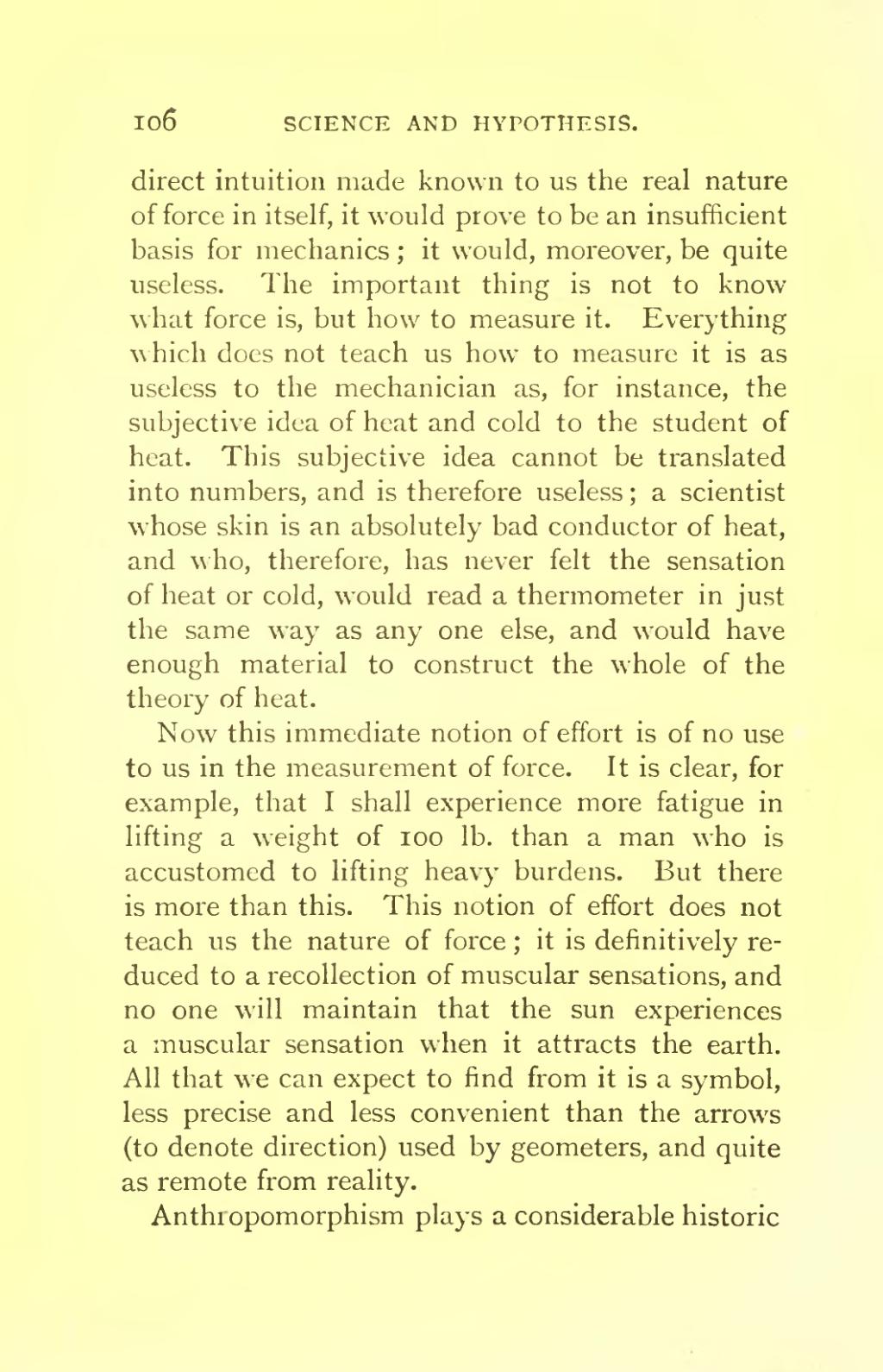direct intuition made known to us the real nature of force in itself, it would prove to be an insufficient basis for mechanics; it would, moreover, be quite useless. The important thing is not to know what force is, but how to measure it. Everything which does not teach us how to measure it is as useless to the mechanician as, for instance, the subjective idea of heat and cold to the student of heat. This subjective idea cannot be translated into numbers, and is therefore useless; a scientist whose skin is an absolutely bad conductor of heat, and who, therefore, has never felt the sensation of heat or cold, would read a thermometer in just the same way as any one else, and would have enough material to construct the whole of the theory of heat.
Now this immediate notion of effort is of no use to us in the measurement of force. It is clear, for example, that I shall experience more fatigue in lifting a weight of 100 lb. than a man who is accustomed to lifting heavy burdens. But there is more than this. This notion of effort does not teach us the nature of force; it is definitively reduced to a recollection of muscular sensations, and no one will maintain that the sun experiences a muscular sensation when it attracts the earth. All that we can expect to find from it is a symbol, less precise and less convenient than the arrows (to denote direction) used by geometers, and quite as remote from reality.
Anthropomorphism plays a considerable historic

